*IN MEMORIAM*
Patch Curtis passed away September 29, 2020 at the age of 99.
Use controls above or click here to open this Hometown Heroes podcast in a new window
96-year-old Patch Curtis of Modesto, CA appears on episode #478 of Hometown Heroes, airing June 30 -July 2, 2017. A native of Saint David, AZ, Curtis served with Troop B, 7th Cavalry Regiment, 1st Cavalry Division in the Philippines during World War II.
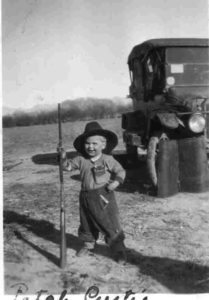
You’ll hear him discuss his childhood in Arizona on the land his grandfather had homesteaded after being directed there by Mormon leader Brigham Young. In 1926, a historic flood wiped out a dam those pioneers had built, setting back the family’s 100 acre farming operation. The following year, seven-year-old Patch lost his mother, and he and his father moved less than a mile away to live with his grandmother. As he got older, the list of this only child’s duties on the ranch continued to expand.
“Chopping woods, picking up chips, bringing them in for starting the morning fire,” you’ll hear him recall. “Collecting eggs, feeding the chickens, carrying slop to the hogs, milking cows and doing all that kinds of stuff.”
Curtis anticipated spending the rest of his life on the farm, but the Great Depression, the bank failures that followed, and the impacts of a severe drought combined to alter those plans. When Patch was a senior in high school, his father was forced to sell his interest in the farm. Patch was allowed to stay behind until his graduation, then headed to San Francisco to witness the World’s Fair before his expected matriculation at the University of Arizona in the fall of 1939.
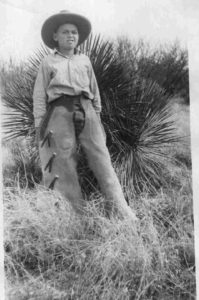
Before ever heading to Tucson, he stumbled across a job in San Leandro, CA at Friden Calculating Machine company. The 40-lb desktop calculators he helped manufacture were in high demand, and he was content to skip college in favor of his gainful employment. You’ll hear Curtis explain in detail his memory of December 7, 1941, when the movie he was watching in Oakland was interrupted by an announcement for all military personnel to return to their bases. Thirty minutes later, the film was once again paused, and the moviegoers were informed that Pearl Harbor had been bombed by Imperial Japan. The next day, Patch went to the Marine Corps recruiting office, but the bespectacled 20-year-old was told he likely would be rejected on account of his nearsightedness. Eight months later, in August, 1942, he was drafted into the Army, and sent to Aberdeen, MD for six weeks of basic training. Invited to cadre training to become a non-commissioned officer, he spent another month there to achieve the rank of corporal, and was sent to southern California to help operate an ordnance training facility at the Santa Anita racetrack.
“We got across the continent and ended up around midnight at Santa Anita,” you’ll hear him remember. “Our bunk that night was on the floor, with a couple of blankets, in the horse stalls.”
The time he spent at Santa Anita even included the opportunity to serve as an extra in a Hollywood movie, but as he continued to train soldiers stateside, he couldn’t shake the desire to eventually fight in the Philippines, where former neighbors of his had been taken captive at the start of the war.
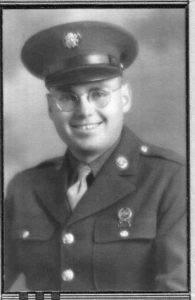
“On December 8 (1941), the Japanese picked them up and put them in a prison camp, the whole family,” you’ll hear him say of his friends the Pearsons. “Should I help if I can? Yes, I should!”
That opportunity finally arrived, and a 19-day ocean journey to New Guinea was the start of an adventure that would nearly cost him his life. He helped unload ships in Oro Bay until he was assigned, along with his friend and future acclaimed gunsmith Roy Dunlap, to the 1st Cavalry Division. After some time on Los Negros in the Admiralty Islands, he would join Troop B, 7th Cavalry Regiment on the Philippine island of Leyte in late November, 1944. You’ll hear some of his early memories of combat, what brought the harsh realities of war home for him, and the Christmas gift he was hoping to receive that never made it to the jungle on December 25, 1944. By early March, 1945, the fighting for Curtis and the 1st Cavalry Division had moved to the island of Luzon. He had watched – and felt the reverberations – as B-24s bombed the city of Antipolo for two days straight, and on March 8, 1945, his unit was ordered to begin its push toward Antipolo at 0800 hours. Patch’s squad drew the assignment of escorting a 155mm artillery observation unit to a prime location from which fire could be directed. Curtis ran point as they navigated their way around shell craters on the climb up the side of a mountain. Encountering opposition by about 1100, the soldiers tried unsuccessfully to neutralize the enemy with bazookas and mortars before the platoon sergeant instructed Patch to take his squad and try to take out the Japanese position with grenades.
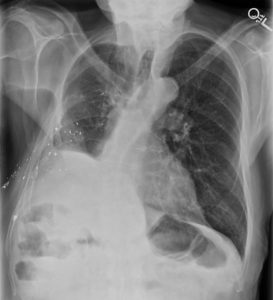
Armed with four grenades apiece, the men traded fire with the enemy as they advanced toward the Japanese position. When one of his men stumbled, almost striking Patch with friendly fire as he went to the ground, Curtis stopped and turned and exhorted the soldier to get up. It was in that moment that Patch was hit in the shoulder by an enemy bullet. Before he could give the command to retreat, he was struck again, this time in the chest.
“It knocked the breath out of me and I went down on my back, it spun me around,” you’ll hear him recall, adding that he briefly thought his life was ending. “A guy grabbed me by one leg and pulled me back around the point of this little hill.”
Watch the video below to see Curtis demonstrating where on his body he was wounded, and discussing the extent of his injuries.
He lost consciousness, coming to as a medic was administering morphine and tending to his wounds.
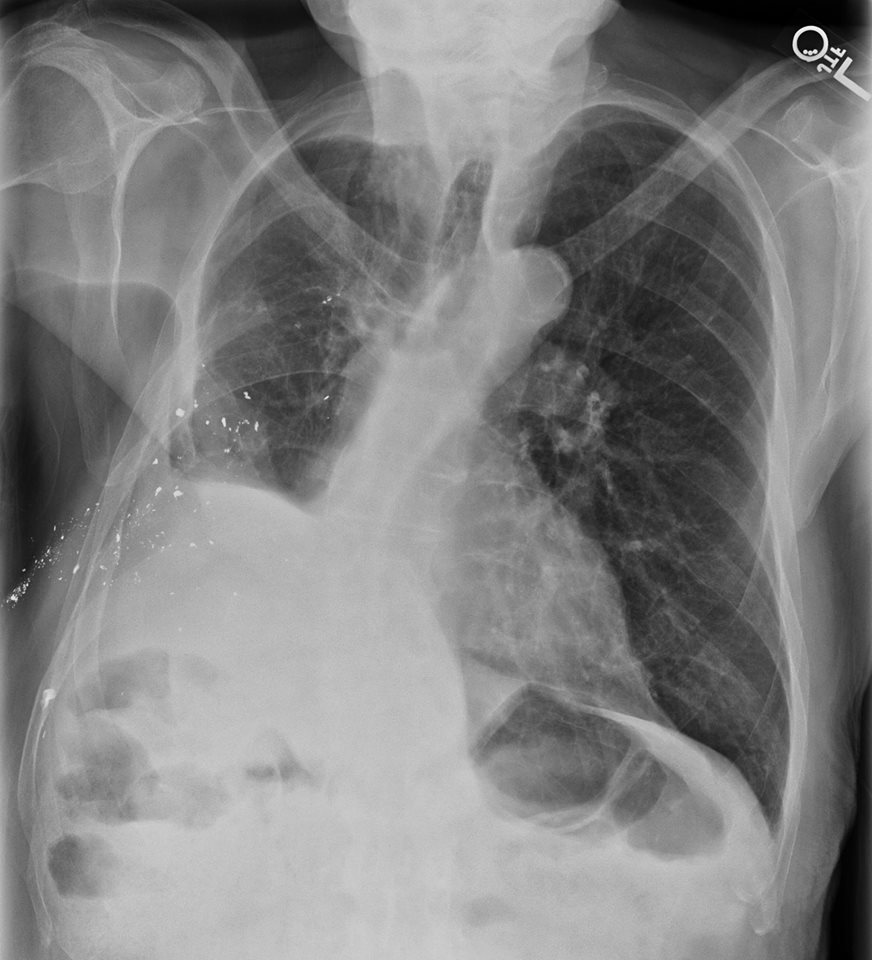
Leave a Reply